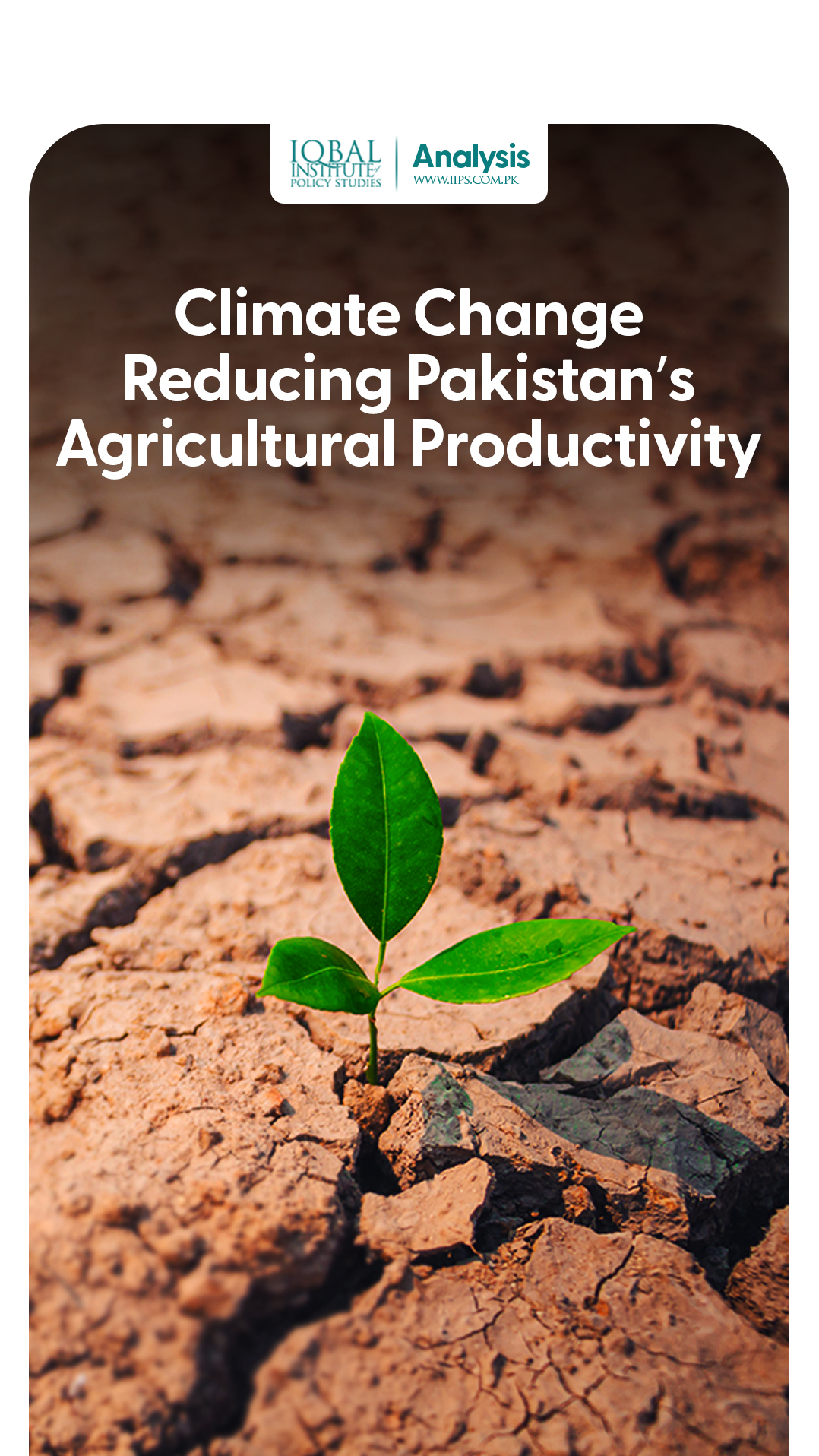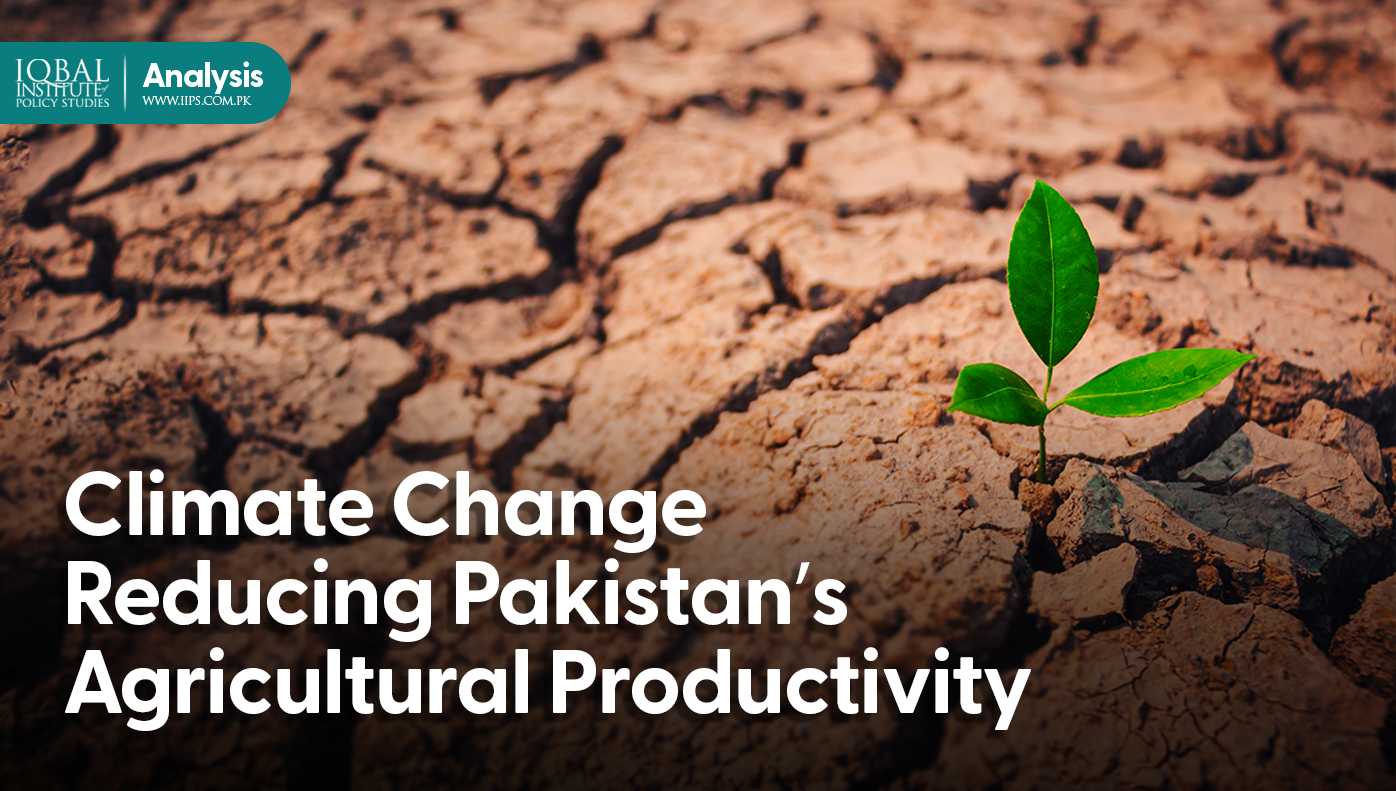Climate change is a recognised universal truth globally, having coincidental adverse impacts on water resources, agriculture production, biodiversity, health, forest systems, and socio-economic sectors. It is anticipated that the developing and under-developed states will undergo severe and profound changes because of global climate change compared to the developed nations. At the societal level, the citizens, especially the poor, will suffer the most and ensure the devastating repercussions of climate change owing to inadequate resources and poor access to basic amenities. Climatic anomalies have become the order of the day. Yet, anthropogenic activities like mining release of industrial waste that cause climate change continue to escalate the global ecological catastrophes, with the poorest peoples that earn the lowest trifling wages being the chief victims without being the chief contributor to its cause.
Pakistan, an agricultural country, is predominantly at risk of atmospheric shift due to its geographical region where the temperature rises are higher than the global average. However, 60 per cent of the population of Pakistan is directly or indirectly reliant upon rain-fed agriculture that depends on predictable weather patterns. Global climate change affects the country’s agriculture, and its impacts seem to increase daily. Pakistan’s crop production, including wheat, rice, cotton, sugarcane, and maise, is highly affected by climate change. Changing conditions also affect agricultural production, farm livelihoods, and agri-business infrastructure leading to food insecurity and malnutrition among the farming communities.
This year, climate change has severely affected the country’s wheat grain production due to abrupt fluctuations in temperature. Generally, wheat grain requires 10-12 days for maturity, but a sudden temperature change reduces the period to four days, reducing the grain’s size and weight. Due to the increasing climate change, it is estimated that this staple crop will face a 4-6% production loss this year (Express Tribune, 2022). The country is already struggling to meet domestic demand for wheat, and this loss will further aggravate the situation. However, not only the wheat production but climate change has also adversely affected the country’s mango production. Due to the harsh weather pattern, it is anticipated that Pakistan will miss the production target this year.
Pakistan has been suffering from the impact of climate change for a long time. The floods of 2010 to 2014 have played havoc as the country faced a loss of $10 billion while its food insecurity increased by 10%. However, climate change has caused widespread damage and affected the country’s agricultural sector. According to the Global Change Impact Study, climate change will decrease Pakistan’s crop productivity. In Pakistan, climate change will decrease agricultural productivity by 8-10% till 2040, and wheat is one of the major losers (Express Tribune,2022). It is estimated that wheat yield will decrease by 6%, and the Basmati rice yield will fall by 15-18% across Pakistan (Express Tribune 2022).
In this context, Pakistan needs to take urgent measures to avert the disaster. First, it needs to depict the vulnerability across the agro-ecological zones as required because every zone has its dynamics.
Second, there is a need to introduce the concept of climate-smart agriculture. Third, the government should strengthen the research and development (R&D) system, as only a sound R&D system can help minimise climate change impact.
Fourth, there is an urgent need to provide timely information to the farmers and evidence-based policy input. For information sharing, the universities should develop linkages with the agricultural extension departments.
Fifth, in the short term, Pakistan can benefit from China through the agricultural cooperation programme under the CPEC. In conclusion, Pakistan must take immediate steps as it is necessary to secure future generations’ interests.



Leave a Reply